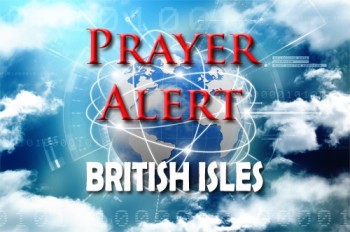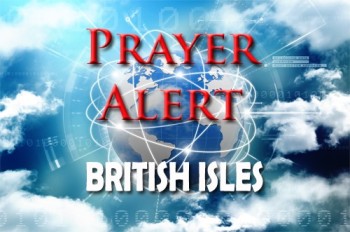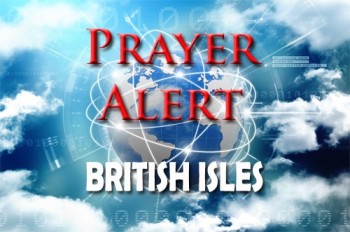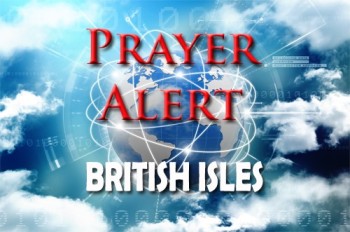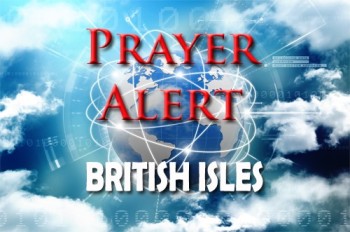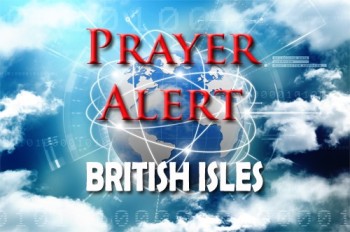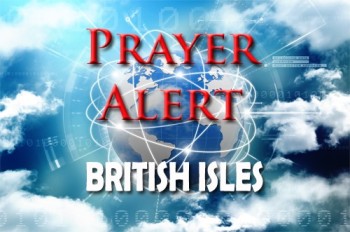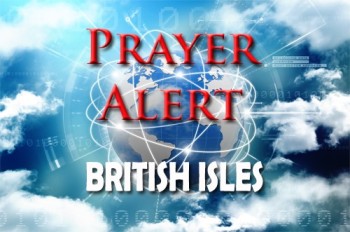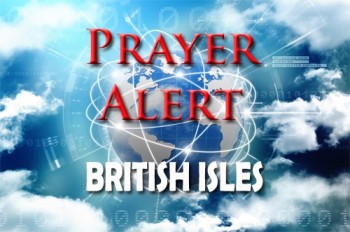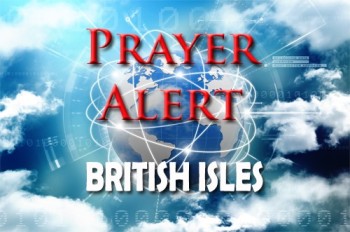Billions in spending cuts expected, including welfare, in spring statement
Rachel Reeves is expected to announce billions of pounds in spending cuts - possibly including welfare - during her spring statement on 26 March. Facing economic challenges and her self-imposed fiscal rules, Reeves cannot borrow for day-to-day spending, leaving cuts as one of her only options. The Treasury is submitting proposals to the Office for Budget Responsibility (OBR) ahead of its economic forecast. Reports suggest that a four-point plan of planning reform, Whitehall cuts, regulation cuts, and welfare cuts will be central to Reeves' strategy. Her fiscal policies require maintaining a £10 billion buffer, yet sluggish growth and rising borrowing costs are forcing difficult decisions. The Government is also bracing for economic impacts from global trade challenges, including Donald Trump’s trade policies. The government faces tough choices between tax hikes or further cuts: the outcome of its decisions will significantly impact public services and financial stability in the coming years.
Social media ban for under-16s?
England’s chief medical officer, Sir Chris Whitty, will examine whether under-16s should be banned from social media platforms like Facebook and Instagram. Ministers are commissioning his advice amid growing concerns over the impact of excessive smartphone use on young people’s mental health. The average British 12- to 15-year-old spends around 35 hours a week on a smartphone, raising alarms about sleep, well-being, and educational outcomes. Campaigners argue that tech companies prioritise profits over child safety, while some MPs claim the Government is moving too slowly on protections. A proposed bill sought to raise the digital age of consent to 16, making it harder for social media sites to collect children’s data. However, the Government is expected to take a softer approach, commissioning a review rather than implementing an outright ban. With Australia having already passed a ban on under-16s using social media, pressure is mounting for the UK to act. Ministers remain cautious, balancing child safety with concerns about stifling tech growth.
PhD student guilty of raping ten women 'had fifty more victims'
Zhenhao Zou, a PhD engineering student at University College London, has been convicted of drugging and raping ten women. Authorities fear he may have attacked up to fifty more victims in the UK and China. Zou filmed his crimes, storing over 1,600 hours of footage from hidden cameras and his mobile phone. The evidence was so disturbing that prosecutors secured eleven rape convictions, despite only two victims coming forward. His crimes spanned from 2019 to 2023, targeting women in London and his home country. Police are appealing for more victims to come forward, describing Zou as one of the most prolific sex offenders in British history. Zou’s depravity included drugging women with GHB, imprisoning them, and forcing them into terrifying ordeals. His trial left jury members in tears as they watched harrowing footage. He now faces sentencing for multiple counts of rape, voyeurism, and false imprisonment. Authorities urge anyone with information to contact This email address is being protected from spambots. You need JavaScript enabled to view it..
Aspirin might stop cancers from spreading
Scientists at the University of Cambridge have discovered how aspirin may help prevent cancer from spreading. Their research suggests that the drug enhances the immune system’s ability to fight cancer by stopping platelets from suppressing T-cells, the body’s natural defence against cancer. When cancer cells break away from a tumour, they try to spread elsewhere in the body - a process called metastasis, which causes most cancer deaths. Normally, T-cells can destroy these wandering cancer cells. However, platelets, which help stop bleeding, interfere with T-cell activity, allowing cancer to spread. Aspirin appears to disrupt this process, restoring the immune system’s ability to attack cancer. While these findings are promising, scientists caution against self-medicating with aspirin, as it carries risks such as internal bleeding. Clinical trials are ongoing to determine which patients may benefit. Researchers hope this breakthrough will eventually lead to safer, more targeted treatments that mimic aspirin’s benefits without its risks.
Taoiseach praises UK-Irish 'reset' ahead of joint summit
Irish Taoiseach Micheál Martin met Keir Starmer in Liverpool ahead of a historic UK-Irish summit. The event brings together cabinet members from both governments to strengthen ties in trade, energy, and security. Discussions will focus on economic growth, investment, and cooperation in renewable energy, technology, AI, and security. A new data-sharing agreement will be announced to boost offshore energy production. Additionally, Ireland will unveil £185.5 million in investments in the UK, expected to create over 2,500 jobs. The summit is taking place amid heightened security concerns in Europe. Martin praised Starmer’s leadership, emphasising the importance of peace and international cooperation. Starmer expressed his commitment to deepening UK-Irish relations, stating that previous ties had not reached their full potential. This meeting marks a new era of collaboration, reinforcing economic and diplomatic ties between the two nations. The summit concludes before Martin attends a European Council meeting in Brussels.
Chaplain fired for beliefs wins full retrial
Rev Bernard Randall, a former chaplain at Trent College in the UK, has been granted a full retrial after a court overturned a 2022 ruling which upheld his dismissal. He was removed from his position after delivering a 2019 sermon encouraging students to debate and engage critically with LGBT teachings introduced at the school. The controversy began when the school adopted guidance from Educate and Celebrate, an organisation aimed at embedding gender identity and sexual orientation into school culture. In response, Randall told students that they should not feel compelled to accept ideologies conflicting with their religious beliefs. He was then dismissed, reported to a government counter-terrorism programme, and barred from ministry within the Church of England. Supported by the Christian Legal Centre (CLC), Randall filed a lawsuit in 2021 alleging discrimination and unfair dismissal. The initial tribunal ruled against him; however, the recent decision by Judge James Tayler found evidence of anti-Christian bias in the original panel, leading to the retrial.
Starmer in Washington for talks with Trump, focus on Ukraine
Keir Starmer has held his first meeting with Donald Trump. Despite tensions between the White House and Europe, Starmer affirmed his trust in Trump and emphasised the 'special relationship' between the UK and the USA. However, Trump appeared reluctant to commit to a US military backstop for Ukraine, stating that Europe should take the lead. Starmer underscored the importance of a lasting peace with a security guarantee to deter further Russian aggression. While the UK and France are prepared to deploy peacekeeping troops, securing US support remains crucial. In preparation for the talks, the UK pledged to increase defence spending, a key NATO requirement, while maintaining strong ties with both the US and European allies. Starmer reassured the British public that national security remains a top priority, while also highlighting opportunities for job creation in the defence sector. For an assessment of Starmer’s visit, which included an invitation from King Charles for an unprecedented second state visit, see
Health crisis sees some GPs working as Uber drivers
A growing number of qualified GPs in England are unable to find work, with some resorting to jobs such as Uber driving to pay their bills. This crisis has been blamed on chronic underfunding and the rising costs of running GP practices, which has left many surgeries without the resources to hire doctors. A new survey by the British Medical Association found that one in five GPs is considering leaving the profession, while nearly half of those surveyed are looking for work outside the NHS. Some are seeking GP roles abroad, while others are considering leaving healthcare altogether. The government has pledged £889 million to reduce administrative burdens and expand GP recruitment programs, but experts warn this is not a long-term solution. Many doctors remain concerned that rising employer national insurance costs will further squeeze GP practices, potentially leading to a mass exodus from the profession. With demand for GP appointments at an all-time high, medical professionals are warning that unless core funding is significantly increased, the NHS could face a two-tier system, similar to what has happened in dentistry, where more doctors turn to private healthcare instead of the NHS. See
Isle of Man set to approve right to die
The Isle of Man is on course to become the first place in the British Isles to legalise assisted dying for terminally ill adults, as its parliament enters the final stages of debate on the legislation. If passed, the law would allow people over 18 with a prognosis of less than twelve months to live to end their own lives under strict medical supervision. The proposal has sparked strong debate, with supporters arguing it grants dignity to those facing unbearable suffering, while opponents, including some doctors, fear it could lead to coercion and an expansion of euthanasia laws in the future. The UK, Scotland, and Jersey are also considering similar legislation, though their proposals differ in residency requirements and medical oversight. Some doctors on the Isle of Man have warned they may leave the profession if the law is enacted, while others see it as a necessary step for those suffering from painful, terminal illnesses.
Highest energy bills in Europe as costs rise again
Despite government pledges to lower the cost of living, UK energy bills remain the highest in Europe, as households face another price hike. From April to July, Ofgem’s energy price cap will increase by 6.4%, pushing the average annual bill to £1,847 - a rise of £111 per year. Although wholesale energy prices have dropped due to potential peace talks between Russia and Ukraine, Europe’s gas reserves have been depleted following a cold winter, keeping costs high. Energy firms are offering fixed-rate deals, but experts warn that locking in a contract may prevent customers from benefiting if prices fall later. With 90% of UK households still on standard variable tariffs, millions remain vulnerable to rising costs. The Government insists its plan to make Britain a clean energy superpower will bring long-term relief, but for now, families continue to struggle with rising bills.

